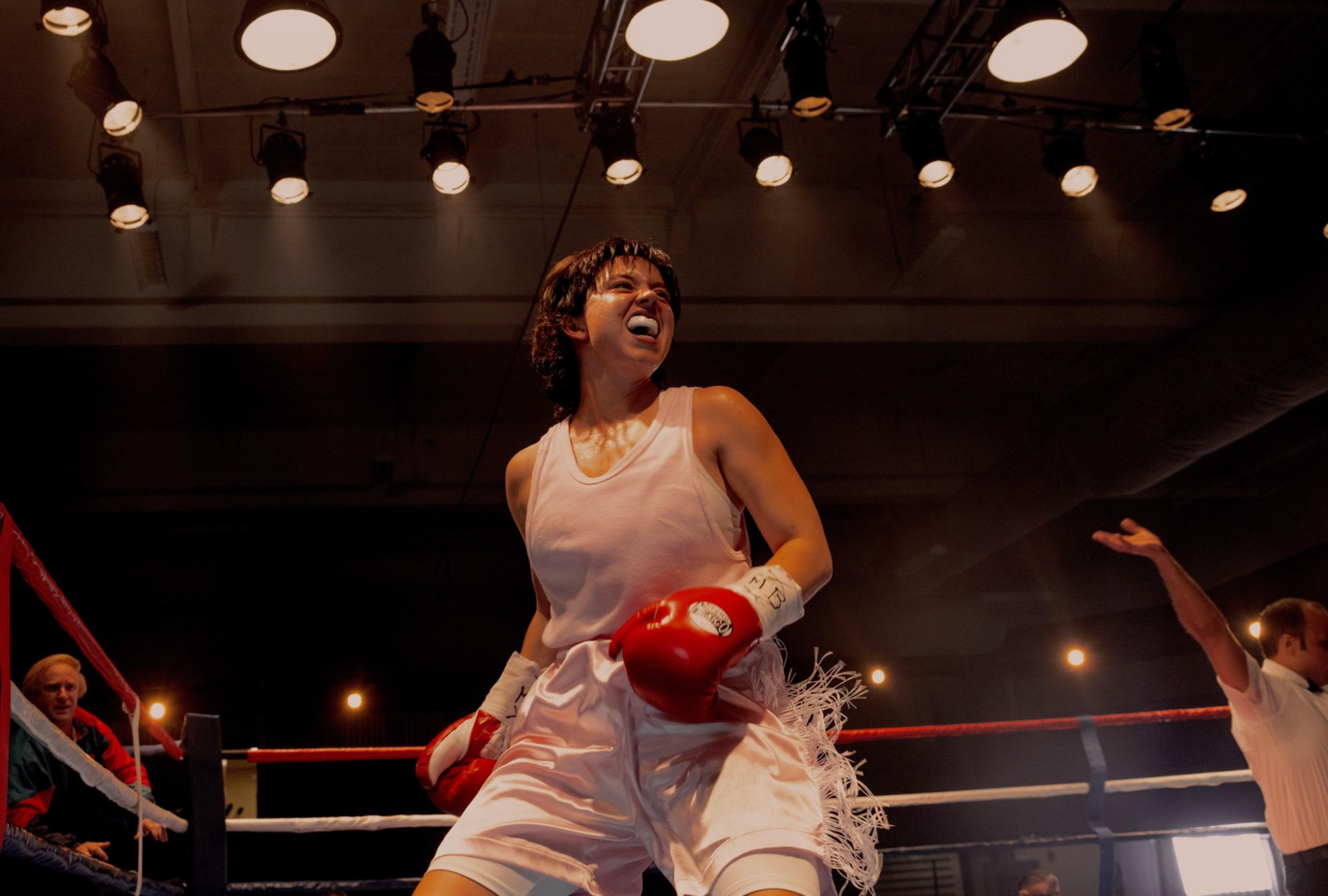Copyright Salon

Considering what happened to the intrepid Christy Martin, the fighter who put women’s boxing on the map in the 1990s and paved the way for countless others in her sport, there is no joy in disliking her Sydney Sweeney-starring biopic, “Christy.” At times, the film is as hokey as they come, a ramshackle project built on half-spun ideas, baffling performance choices, a scatterbrained script and a barrel of old wigs purchased from a defunct cosmetology school’s liquidation sale. In other moments, far rarer ones, “Christy” is briefly moving, a tale of how easily naive self-determination can be manipulated by misogynist scoundrels lurking in the corner of a shadowy boxing gym. To say these two elements ever meet long enough to spar would be erroneous. Put into the same boxing ring to duke it out, the movie’s unintentional silliness easily KO’s its blips of emotional gravity. But it’s not just that the script is formulaic — so much so that we’ve seen a similar story play out on the silver screen, just last month — but that its star doesn’t carry the same conviction as the film’s subject. Martin, a complete amateur who got her start collecting meager prizes in local Toughwoman contests, swung through gender barriers and crowds of deniers to prove her worth as a boxer. And while Sweeney has certainly faced her own share of critics throughout her relatively young career, director David Michôd’s film is eager to conflate these two stories. If “Christy” is Sweeney sending a message through her art, it may as well be the cinematic equivalent of “Dogs Playing Poker,” an image so often remixed and regurgitated that it’s devoid of any compelling meaning. Here, Sweeney takes a big leap from her admirable work in small-screen dramas and rom-coms to an ostensible Oscar vehicle, diving into the deep end with the same fearless certainty Martin boasted in the ’90s. But much like boxing, mere confidence is not enough to win. Acting requires a performer to constantly train, flex and build their muscles. It’s not enough to be a fighter; you have to believe in what you’re fighting for. Sweeney has only continued to play coy about the controversy surrounding her American Eagle “great jeans” ad and its whirlwind of murky politics, dancing around the topic for the first time in a GQ interview earlier this week. And while actors aren’t required to be activists, evading a concrete statement while promoting a film about a woman who has devoted her post-boxing career to social advocacy gives “Christy” and Sweeney an incontrovertible dissonance. In a role that demands depth and dogma, Sweeney displays little of either, making “Christy” feel like a vessel for someone else’s ideas. That this is the same criticism Sweeney faced during the American Eagle ad backlash doesn’t exactly help the film’s case — and, I should note, it would be unfair to correlate the film and its star without merit. But consider the fact that GQ published a video interview this week, where Sweeney equated herself to Martin because Sweeney finds herself “in a lot of battles both in front and not in front of the world,” noting that she related to the character through that lens. A few moments later in the interview, GQ features director Katherine Stoeffel asks Sweeney if she’s concerned people won’t want to see “Christy” because of the controversy surrounding the advertisement. Sweeney admitted that, if someone doesn’t want to see the film because of the debate, she hopes “something else could open their eyes to being open to art and open to learning.” Sweeney then mentions that, when she has something she wants to say, she does it through her art. If “Christy” is Sweeney’s message through art, it may as well be the cinematic equivalent of “Dogs Playing Poker,” an image so often remixed and regurgitated that it’s devoid of any compelling meaning. The film’s most remarkable feat is that it manages to fit both everything and nothing into its plodding 135 minutes — even the brief “so bad it might be good” thrill wears off in a flash. In no time, Christy wins her first fight, is accused of lesbianism by her overbearing, conservative mother, Joyce (Merritt Wever) and readies herself to leave home in search of a better life in the amateur boxing ring. Soon after, she’s referred to James Martin (Ben Foster), a boxing coach who has no interest in training a woman until he sees what a mean punch Christy can throw. Now there are dollar signs in his eyes and a hollow hum in the space where his heart should be, as if to suggest she might be a woman he could love, if a man like James knew how to love anyone. Start your day with essential news from Salon. Sign up for our free morning newsletter, Crash Course. As Christy climbs the ranks in her sport, James’ greed intensifies. He begins to skim cash off the top of her prize money, hiding it in a tin can in their backyard. And his possessiveness extends to Christy, too. At his coercion, Christy endures strange semi-psychosexual mind games, physical abuse and encouraged drug use. None of this feels as extreme or horrifying as it should, though, because Michôd and co-writer Mirrah Foulkes’ screenplay is too hyper-focused on hitting all of the standard biopic beats. In the ring, Christy rises, she falls, she stumbles and gets back up again; all the points needed to convince the audience of her resilience are there. But what makes Christy’s story so remarkable, yet singularly tragic, is that, as brave and brilliant a fighter as she was, she had none of that agency in her marriage. Michôd occasionally comes close to suggesting a strange power play is going on here, where James is bullying Christy to fight harder during matches by traumatizing her himself. Still, the film never asserts that idea clearly enough for it to stick. Being dragged online for ad copy pandering to conservative ideals isn’t the same thing as living and surviving the torture Martin endured, and refusing to disavow the response to that ad copy doesn’t make Sweeney a renegade like Martin, either. Sweeney has a tough enough job cut out for her trying to act her way out of a paper-thin script, but this one-note, ridiculously monotone performance does her no favors. Sweeney’s hairpieces change more than her inflection does throughout the film. Moments of dramatic tension hold the same amount of passion as Christy’s quieter, heartbroken moments — which is to say, some, but not nearly enough to make an impression. When the film demands that Sweeney cry, she can cry with the best of them. But there’s no severity or immediacy in her tears. They are mere dramatic deceits, liquid coming on cue. As Christy, Sweeney’s face looks as blank and emotionless as it does in the GQ interview when the media training kicks in and her expression turns cold. It’s not enough for an actor to disappear from the viewer’s sight. That’s like sawing the magician in half and never putting them back together again. But the real tell is Wever, whose performance as Christy’s mother is so outrageous and pitch-perfect that it took me a moment to get a handle on it. Initially, Joyce’s mock turtlenecks and hairspray-stiff wigs, combined with the featherlight, Zelda Rubenstein-esque voice Wever is putting on, seem like another car crashing into a pile-up. To add insult to injury, here’s the most camp performance to hit the silver screen in a minute. And while I’d never turn up my nose at high camp, especially in a film that needs it as badly as “Christy,” Wever’s performance slowly turns into something else entirely. Slowly, one realizes that she’s actually impeccable in this role, the perfect fit to play a homophobic, imperious Virginian mother. Wever imbues every word with a subtle nefariousness, bringing a depth to the film that it so desperately needs. In a film so terrible, Wever stands out as its only bright spot, initially making her performance seem uniquely bad and strangely contrived when, in fact, it’s easily the best of the bunch. Wever’s on-screen choices make it clear exactly who Joyce is, even with little screentime. But we never really get to know Christy. We can certainly understand that she’s supposed to come off as ardent and unyielding, even surmising that she’s unsure of how to love anyone else because of how improperly she’s been loved herself. But ironically enough, none of the characters who communicate these themes have their name in the title. Sweeney clearly cares about Martin’s story; she’s a producer on the film and, when she speaks about Martin’s life, it’s evident that there is, at the very least, an element of passion here. But it seems that Sweeney hasn’t quite squared how to bring that enthusiasm with her beyond surface parallels. Just because Sweeney and Martin have both been in the spotlight doesn’t mean that Sweeney is the right choice to tell a story of this magnitude. Being dragged online for ad copy pandering to conservative ideals isn’t the same thing as living and surviving the torture Martin endured, and refusing to disavow the response to that ad copy doesn’t make Sweeney a renegade like Martin, either. If Sweeney’s going to let her art do the talking, she better make sure it’s saying something first.



